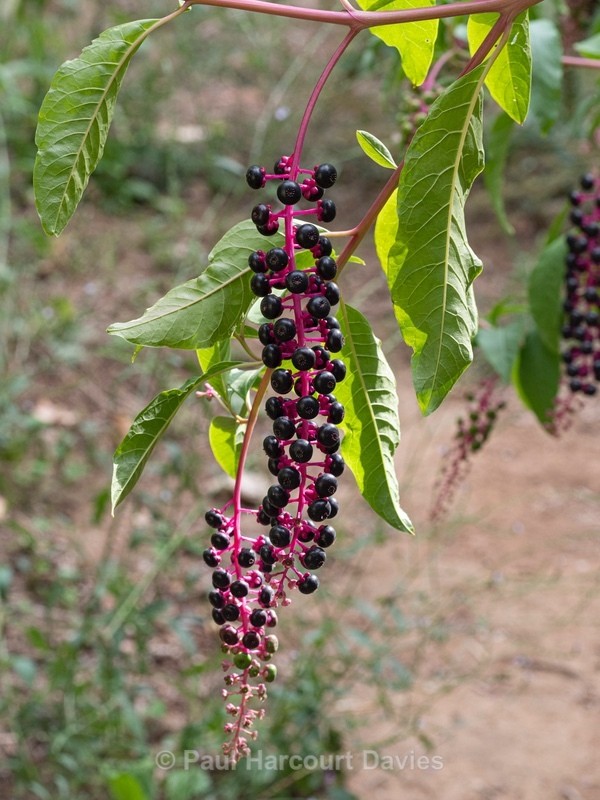
Levantine Pokeweed ( Phytolacca pruinosa) also known as. Indian ink plant has spread widely throughout S. Europe. The more famous Phytolacca americana (American pokeweed, pokeweed, poke) is used as a folk medicine and as food, although all parts of it must be considered toxic unless properly prepared. The root is never eaten but Poke salad ('poke salat') is considered part of traditional southern U.S. cuisine, where it is cooked three times in three changes of boiling water to remove some of the harmful components. Toxic constituents which have been identified include the alkaloids phytolaccine and phytolaccotoxin, as well as a glycoprotein. Blera, Lazio, Italy, September 2021














